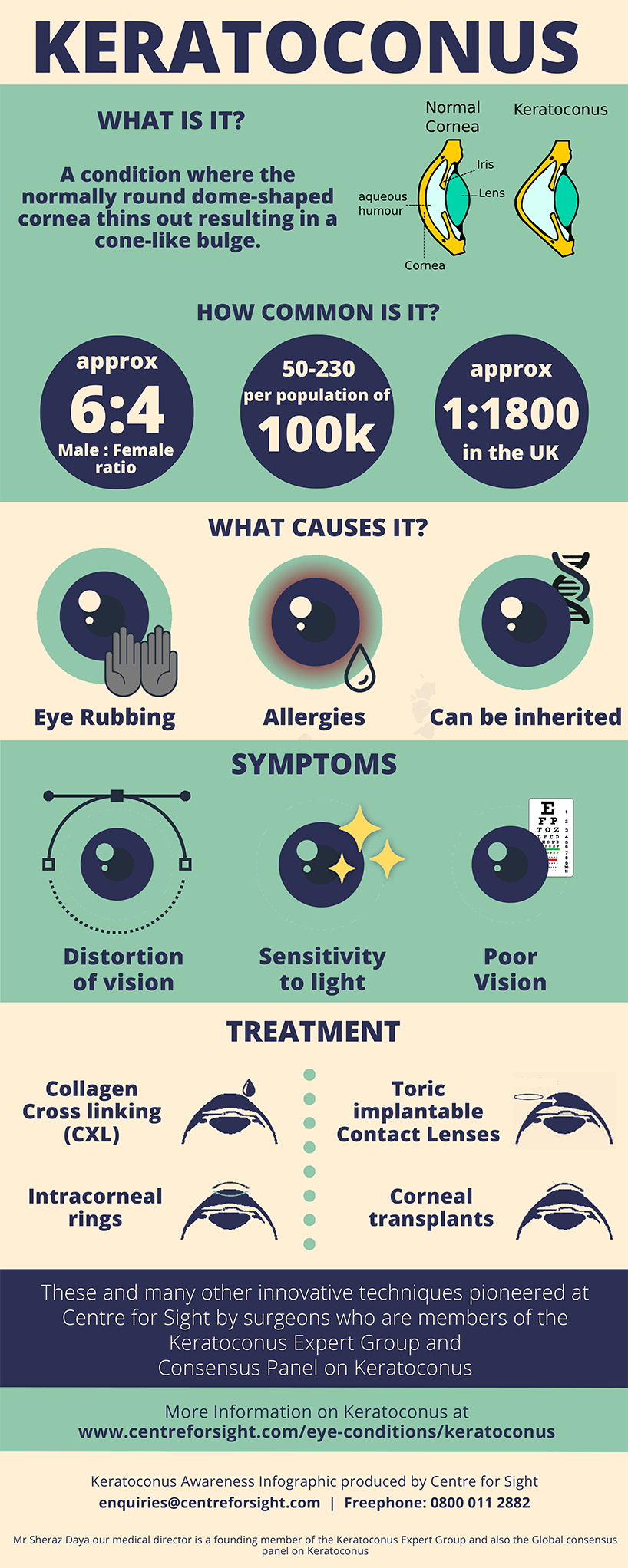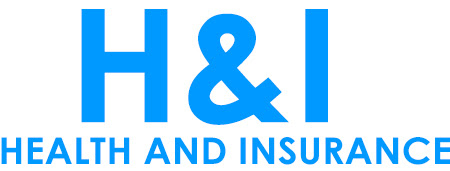Keratoconus is a condition that affects 1:1800 Britons with the prevalence as high as 1:450 in some ethnic groups.
Keratoconus is formed by two Greek words: kerato, meaning cornea, and konos, meaning cone. In this condition the usual round cornea (front clear window of the eye) becomes cone shaped resulting in poor vision.

As leaders in the area of Cornea and conditions affecting the front of the eye, Centre for Sight as a service to the public have created the following infographic which provides a quick overview of the condition. The goal is to increase awareness of the condition and the various treatment options available.
We’ve put together an infographic covering the basic questions on Keratoconus, but if you want more details, you can always refer to its eye conditions and its treatments.
Mr. Sheraz Daya, Medical Director is a pioneer of many of the new techniques used and is a founding member of the Keratoconus Experts Group as well as the Global Consensus panel on Keratoconus.
If you have experienced Keratoconus or know someone that has, or you are just fascinated to know more about this eye condition, please share the infographic below. We hope you enjoy it!

Share this Image On Your Site
Keratoconus is formed by two Greek words: kerato, meaning cornea, and konos, meaning cone. In this condition the usual round cornea (front clear window of the eye) becomes cone shaped resulting in poor vision.

As leaders in the area of Cornea and conditions affecting the front of the eye, Centre for Sight as a service to the public have created the following infographic which provides a quick overview of the condition. The goal is to increase awareness of the condition and the various treatment options available.
We’ve put together an infographic covering the basic questions on Keratoconus, but if you want more details, you can always refer to its eye conditions and its treatments.
Mr. Sheraz Daya, Medical Director is a pioneer of many of the new techniques used and is a founding member of the Keratoconus Experts Group as well as the Global Consensus panel on Keratoconus.
If you have experienced Keratoconus or know someone that has, or you are just fascinated to know more about this eye condition, please share the infographic below. We hope you enjoy it!

Share this Image On Your Site
